Inside the GOP fight to deliver Trump’s megabill

Washington, DC — Just after midnight on July 3, a day before the GOP’s self-imposed deadline to pass President Donald Trump’s megabill, full of a laundry list of campaign promises, House Majority Whip Tom Emmer was reminded that just about anything can happen on the House floor.
Kentucky Congressman Thomas Massie, a fiscal conservative and frequent thorn in the side of Trump and his Republican colleagues, marched up to Emmer. After a brief exchange observed by ABC News reporters and confirmed by GOP lawmakers, Massie walked to the well of the chamber and changed his vote from “yes” to “no” on a key procedural step to advance Trump’s bill to the floor — bucking GOP leadership.
The effort to pass Trump’s signature bill pulled back the curtain on internal divisions in the House Republican conference and exposed wounds that could spell trouble ahead for other high-profile fights, like the effort to fund the government and avert a shutdown in September.
ABC News conducted multiple interviews, delving into the yearlong effort by Emmer and other Republican leaders to lock down support for the president’s megabill, culminating in two dramatic, sleepless nights early this month.
House Majority Whip Tom Emmer, R-Minn., talks with ABC News’ Jay O’Brien in his Capitol office, July 16, 2025.
Ian Sbalcio/ ABC News
A massive challenge
It was now the wee hours of the morning of July 3 and passing the signature legislation of Trump’s second term was getting harder — not easier. There was a very real chance the bill could fail. And this wasn’t even the final vote, but rather a critical procedural hurdle that could trip up Republicans from crossing the finish line.
With a 220-212 majority over Democrats, Speaker Mike Johnson could afford to lose just three Republican votes before a fourth defection spelled disaster.
Flipping the dozen or so holdout members would be a massive challenge. But there was another, more immediate problem: Several Republican holdouts were huddled somewhere in the sprawling Capitol complex, refusing to come to the chamber to cast their votes. And GOP leaders couldn’t find them.
“My attitude is always, we will succeed. We will win,” Emmer, R-Minn., told ABC News in an exclusive interview. “This is what 77 million people elected this president to do. He is honoring his promises, and by the way, so are we.”
“It was getting people to that realization at the end of the day that it was bigger than the individual,” he added.
For Johnson and the Republican leadership team, passing the bill was a culmination of hundreds of meetings, phone calls and side conversations on the House floor and in the halls of Congress.
They had to push through at least two all-nighters. Emmer, the man responsible for counting and “whipping” Republican votes, estimates his team stretched more than 40 hours without sleep in the days before the bill survived its final showdown in the House.
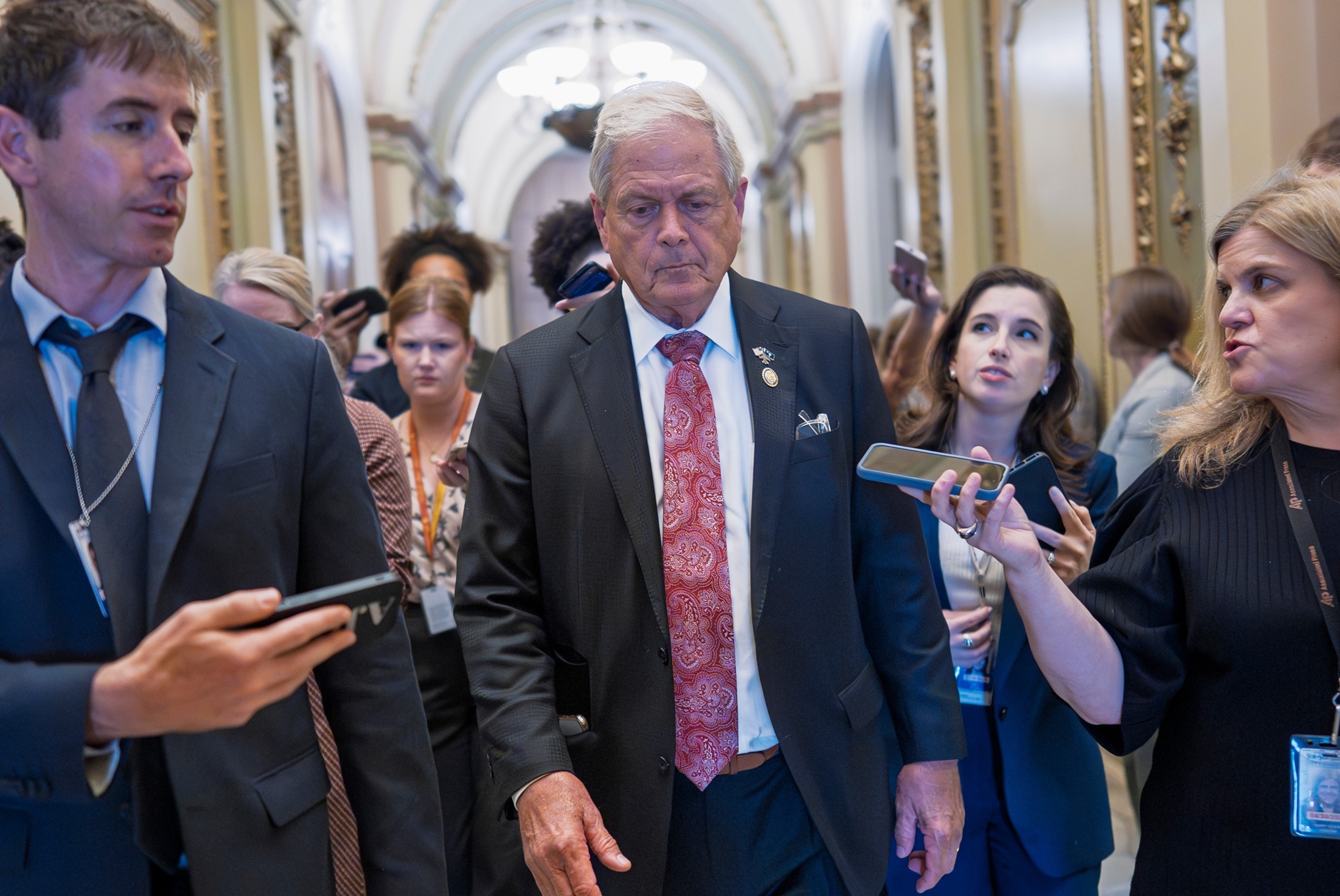
Rep. Ralph Norman speaks to reporters following his White House meeting as Republicans work to push President Donald Trump’s signature bill of tax breaks and spending cuts across the finish line in Washington, July 2, 2025.
J. Scott Applewhite/AP
“It’s bringing everybody into the process, because if you feel like you’ve been involved in the process, you’re more likely to support the final outcome,” Emmer said about his whip operation. “And that’s why I think these people, even the ones who didn’t get everything they want or wanted more in it, that’s why they were so euphoric after it passed.”
Backroom deals and a Trump charm offensive
But this legislative saga ultimately came down to backroom deals largely struck not with House Republican leadership, but between the White House and hard-line GOP holdouts.
On the night of the procedural vote, as House Republican leadership sent emissaries to find that missing group of holdouts, many were secretly gathered in Texas Congressman Chip Roy’s office.
As Speaker Johnson held the vote open, the holdouts knew some of their Republican colleagues were looking for them. But despite the mounting pressure inside the Capitol, conservatives were losing interest in negotiating with party leadership anymore, several told us. They wanted to talk to the White House.
After a delay of more than six hours and continued strategizing, the group decided to walk over to the Capitol only after they felt the White House met some of their demands — and after one of their colleagues, Rep. Scott Perry, drove back from his home in Pennsylvania having left the Capitol in a huff over the bill.
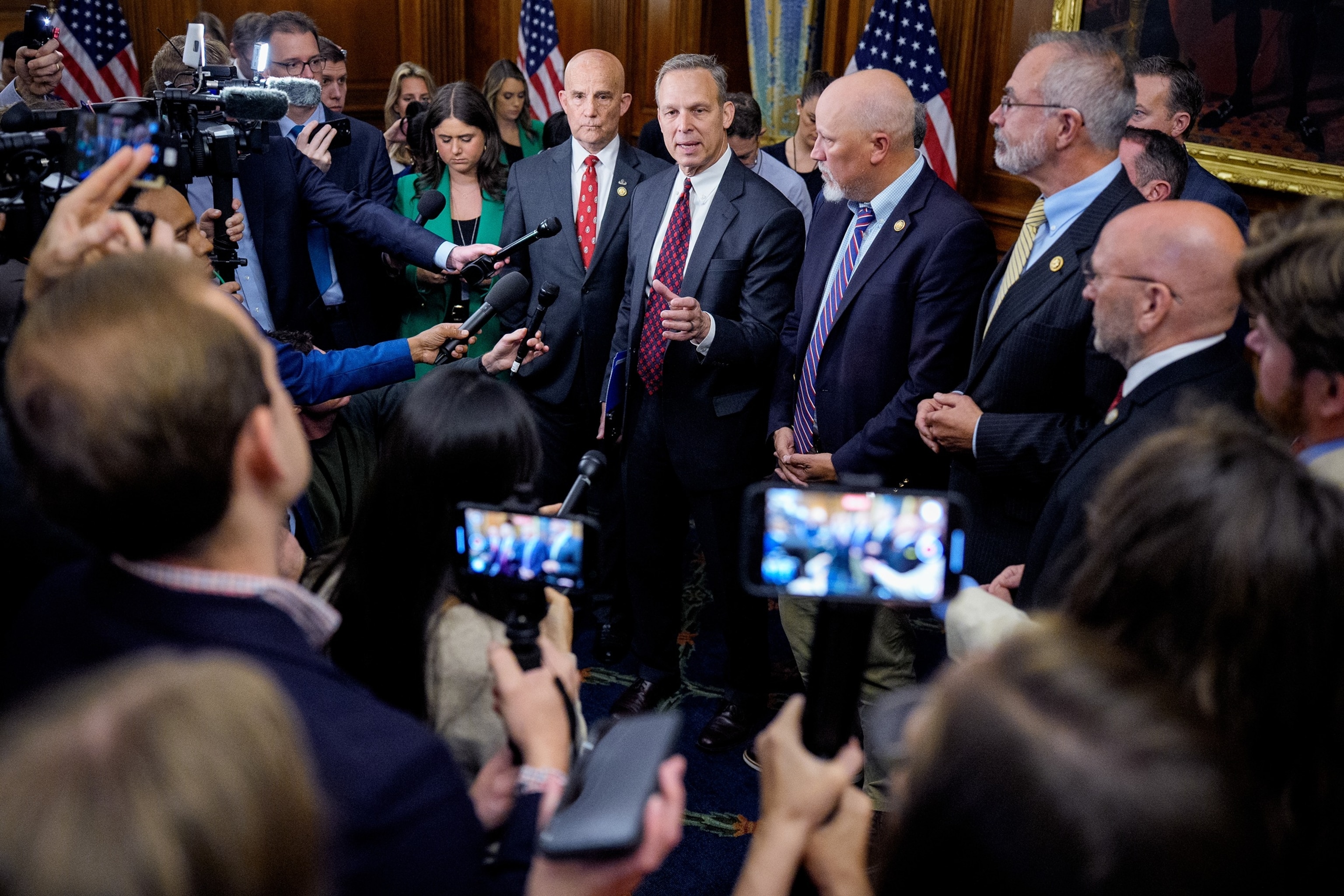
Rep. Scott Perry, accompanied by Rep. Chip Roy, Rep. Keith Self, House Freedom Caucus chair Rep. Andy Harris, and Rep. Clay Higgins, speaks about the ongoing negotiations between House leadership, the White House and the House Freedom Caucus on the “One, Big, Beautiful Bill” at the Capitol Building, May 21, 2025.
Andrew Harnik/Getty Images
Privately most of the holdouts said they didn’t want to amend the language of the bill — fearing if the bill were to be sent back to the Senate, Alaska Republican Sen. Lisa Murkowski would leverage her critical vote in that chamber to extract even more carveouts for her home state.
“She had more leverage, and she would get goodies, as they call it, for Alaska and God knows what else,” Rep. Ralph Norman, R-S.C., told ABC News.
But it wasn’t just fears of Senate moderates that swayed House Republican hard-liners. Many softened their resolve after a charm offensive from Trump, several told us. It was a campaign blessed by Johnson, Emmer and other Republican leaders, who told the president which holdouts to entertain and which to ignore.
“I talked to [President Trump] a couple days earlier, and I gave him the names of the people that were going to be key to this,” Emmer said. “This literally is showing the American people that we can perform on Donald J. Trump’s promises, and by the way, the same promises that we made on the campaign trail.”
Trump “was the nicest guy”
In an Oval Office meeting the day of that key procedural vote, Trump doled out compliments to members of the House Freedom Caucus and signed merchandise and photos.
“The president had a different tone. Sometimes he can be abrupt,” one House Republican member who spoke on the condition of anonymity told ABC News. “That day he was the nicest guy.”
But promises were made, too, some of the holdouts say. To earn his vote on that key procedural hurdle, Massie asked that Trump stop personally attacking him on social media, multiple sources with knowledge told ABC News. A spokesman for Massie declined to comment but one Republican lawmaker described Massie’s move to ABC News as “brilliant” because they believe the congressman always wanted to vote for the procedural hurdle anyway.
Massie ultimately changed his vote back once again from “no” to “yes” to advance the bill, but then voted against it on final passage.
“It wasn’t beautiful enough for me to vote for it,” Massie told ABC News as he hurried to his car after the vote.
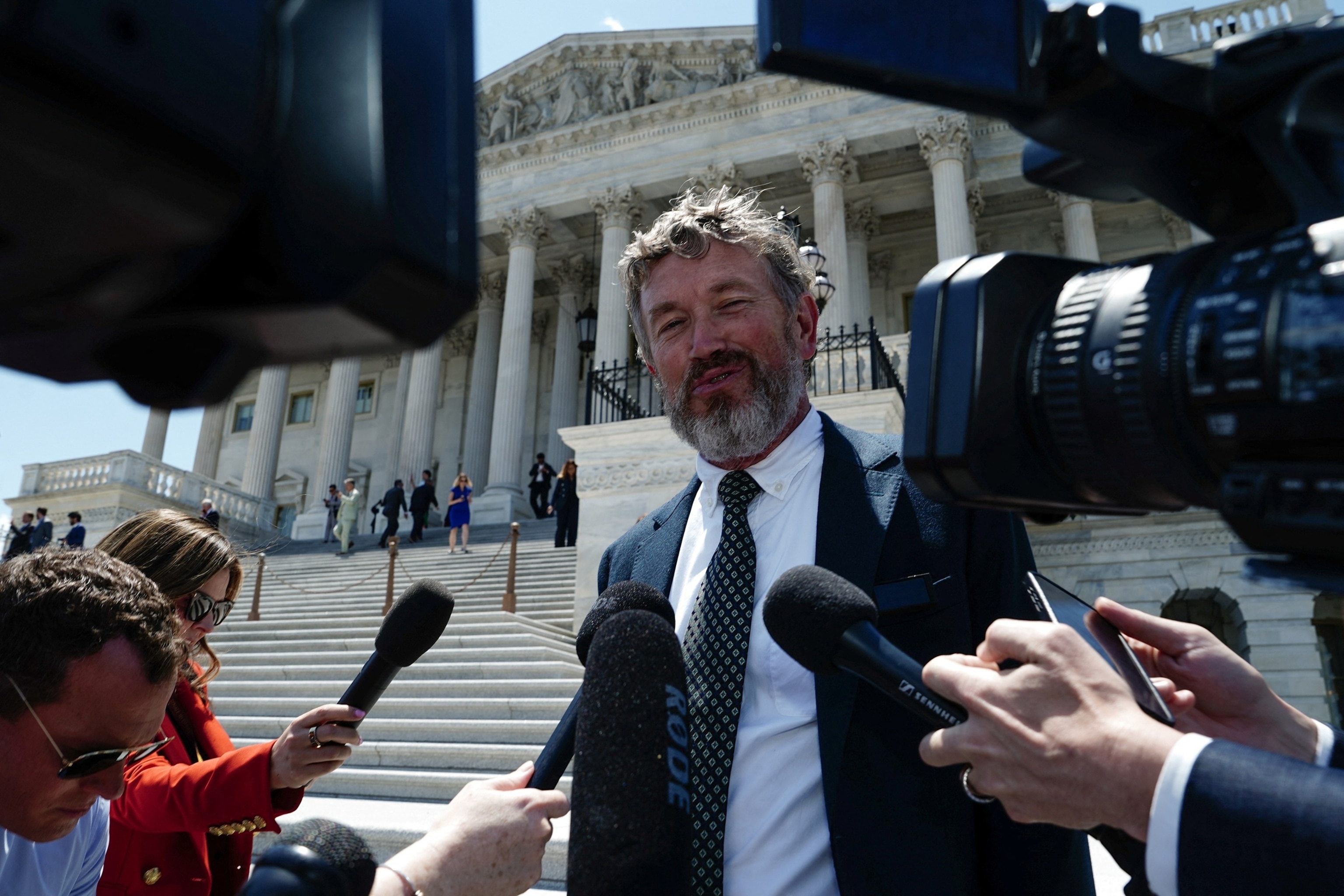
Rep. Thomas Massie speaks to the media after the House of Representatives voted to pass President Donald Trump’s sweeping spending and tax bill, on Capitol Hill, July 3, 2025.
Ken Cedeno/Reuters
To pick up the support of a band of deficit hawks in the House Freedom Caucus, the White House agreed to a series of executive orders and other administrative actions, five members told ABC News.
Wary that the administration would go back on its word, several members took notes of the concessions the White House made, some of which ABC News has reviewed.
The hard-liners ABC News spoke to shared only scant details of the exact terms and timing of their deals with the White House, concerned the Trump administration would renege if the agreements were made public. But, the topics include an effort to balance the federal budget, a push to rescind Biden-era green-energy tax credits faster than the president’s megabill calls for, and action on conservative social issues.
Ultimately, all of the holdouts — even Roy and Harris — voted for the bill.
“I told a certain group that made it a very arduous process, ‘You know, I hate you guys, but you are also the greatest negotiators I have ever worked with. You are like a dog on a bloody bone. You will not let go until the absolute last minute,'” Emmer said.
Asked what deals he was aware of, Emmer sidestepped — contending that the face time with the president and hearing him give his word was enough to sway their votes.
“They were part of the process in getting to yes, their concerns were listened to,” he said. “Their concerns were heard. They understand that the top guy in this country, our leader, the party leader, the country’s leader, the world leader, Donald J. Trump, heard me and heard my concerns and heard what I envisioned for the future.”
Hard-liners argue the concessions were far more tangible than that, even as some moderates in their party continue to privately taunt them for caving.
“That’s just not right. We did the best we can do up here,” Norman said. “You make it better. You use every legislative tool you have, time wise. And is that caving? No, it’s getting the best you can get people represented.”
As Republicans try to sell the new law to constituents, they face serious political headwinds.
“This bill is being attacked by the media and by the left. This is their whole thing. Lies, lies, lies, lies. What you’re going to see a year from now is people are going to recognize that this bill delivered on the promises that Donald Trump made,” Emmer said.
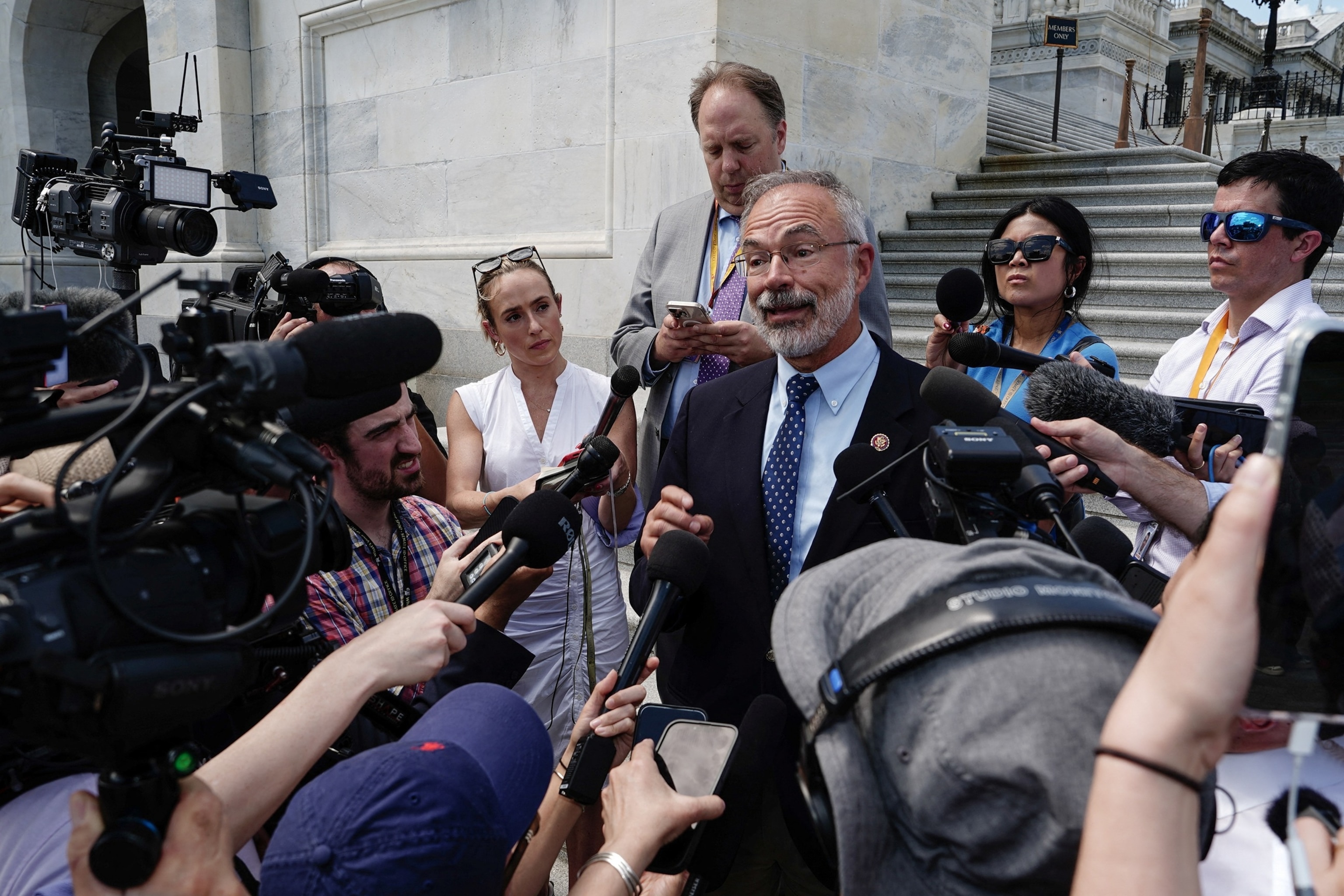
Rep. Andy Harris, Chair of the House Freedom Caucus, speaks to the media after the House of Representatives voted to pass President Donald Trump’s sweeping spending and tax bill, on Capitol Hill, July 3, 2025.
Ken Cedeno/Reuters
Making an end run around House leadership
While Republicans plan to run on the bill in the upcoming 2026 midterms — and have to contend with its impacts — there is one more immediate political challenge: this legislation has shaken how some feel about House leadership.
Some conservatives told us they’d prefer to simply deal directly White House in the future, and make an end run around Johnson, Emmer and other GOP leaders.
But other hard-liners feel strongly that they want to work on improving their relationship with leadership and appreciate their attention over the last few months.
Emmer, for his part, says he isn’t concerned about the challenging dynamics in his party.
“The divisions, as you define them, are differences of opinion,” he said. “That’s not division. That’s America. We’re not all the same. You’ve got to put this melting pot together, and the beauty of our party is that we are allowed to disagree with one another.”
But as Emmer spoke with ABC News on Wednesday and recounted the triumph of the One Big Beautiful Bill Act two weeks earlier, another revolt was brewing that would again challenge his whip operation.
A familiar group of hard-liners had once again drawn another line in the sand during Crypto Week — refusing to advance legislation without additional concessions — a day after Trump had claimed he’d struck a deal with GOP holdouts.
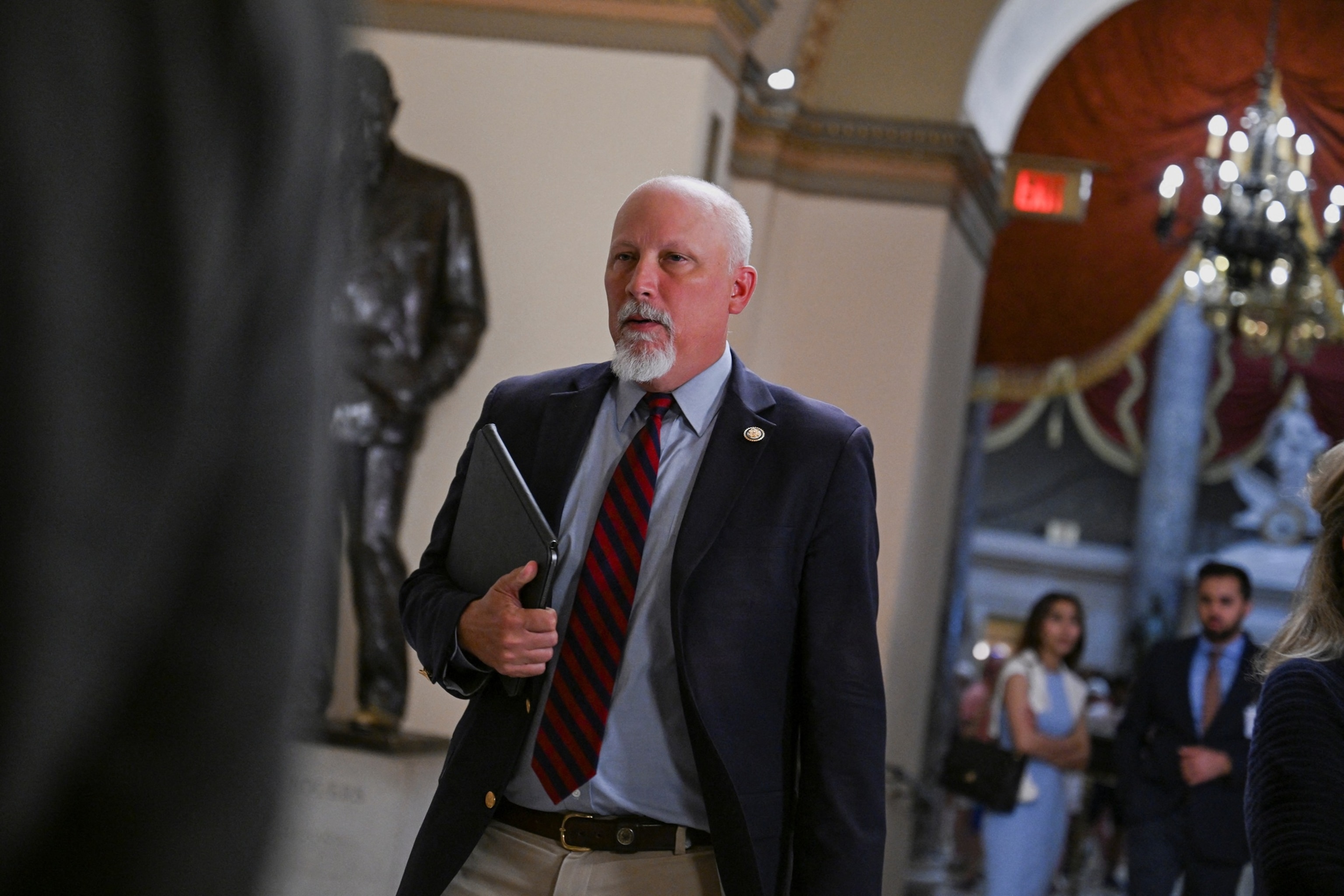
Rep. Chip Roy walks, as Republican lawmakers struggle to pass President Donald Trump’s sweeping spending and tax bill, on Capitol Hill, July 2, 2025.
Annabelle Gordon/Reuters
With Republicans falling short on the floor, Johnson again kept the vote open — pulling holdouts together behind closed doors near the House chamber. Negotiations dragged on for hours as aides dragged multiple carts of food, wine, beer and hard seltzer into the office.
“Sometimes it takes longer than others”
Nine hours later, House Republicans broke another record for the longest recorded vote in congressional history. Sixteen members ultimately flipped their votes after receiving assurances from GOP House leaders that anti-central bank digital currency legislation would be attached to the must-pass National Defense Authorization Act later this year.
“We just, you know, work through everybody’s concerns and found a solution, and we build consensus,” Johnson told ABC News. “I mean, sometimes it takes longer than others, and they told me, we set another record last night for the open vote or something. But it never concerns me how long a vote is open. We just have to have the right results. So it worked out.”
Even after that hurdle was cleared, Republicans were onto their next intraparty showdown to meet the president’s request to claw back $9 billion from the federal budget after holdouts struck another deal related to a non-binding resolution calling for the release of “certain” Jeffrey Epstein files.
That whack-a-mole approach may not always produce the anticipated result, but it represents a hardening dynamic where the certainty of frantic negotiations down to the wire is the only guarantee on Capitol Hill — and one that threatens a government shutdown this fall.
Despite that unpredictability, Emmer says there are no surprises on the road to success.
“You may not hear about us as much, but what we’re doing with all of our members is you got to believe. You got to be inspired to want to do something that nobody thinks you can achieve,” Emmer said as he explained his approach. “And as long as that just starts building, it builds with the first thing that you pass with two extra votes, and that muscle memory keeps building.”
“People have their disagreements leading into these votes, but once they’re over, I mean, it’s euphoric. It’s like you just won the seventh game of a seven-game playoff series,” Emmer said. “That feeling is something that they remember. They’ll be right back to debating and disputing and bumping into each other, but that is why we do it.”
ABC News’ Lauren Peller contributed to this report
